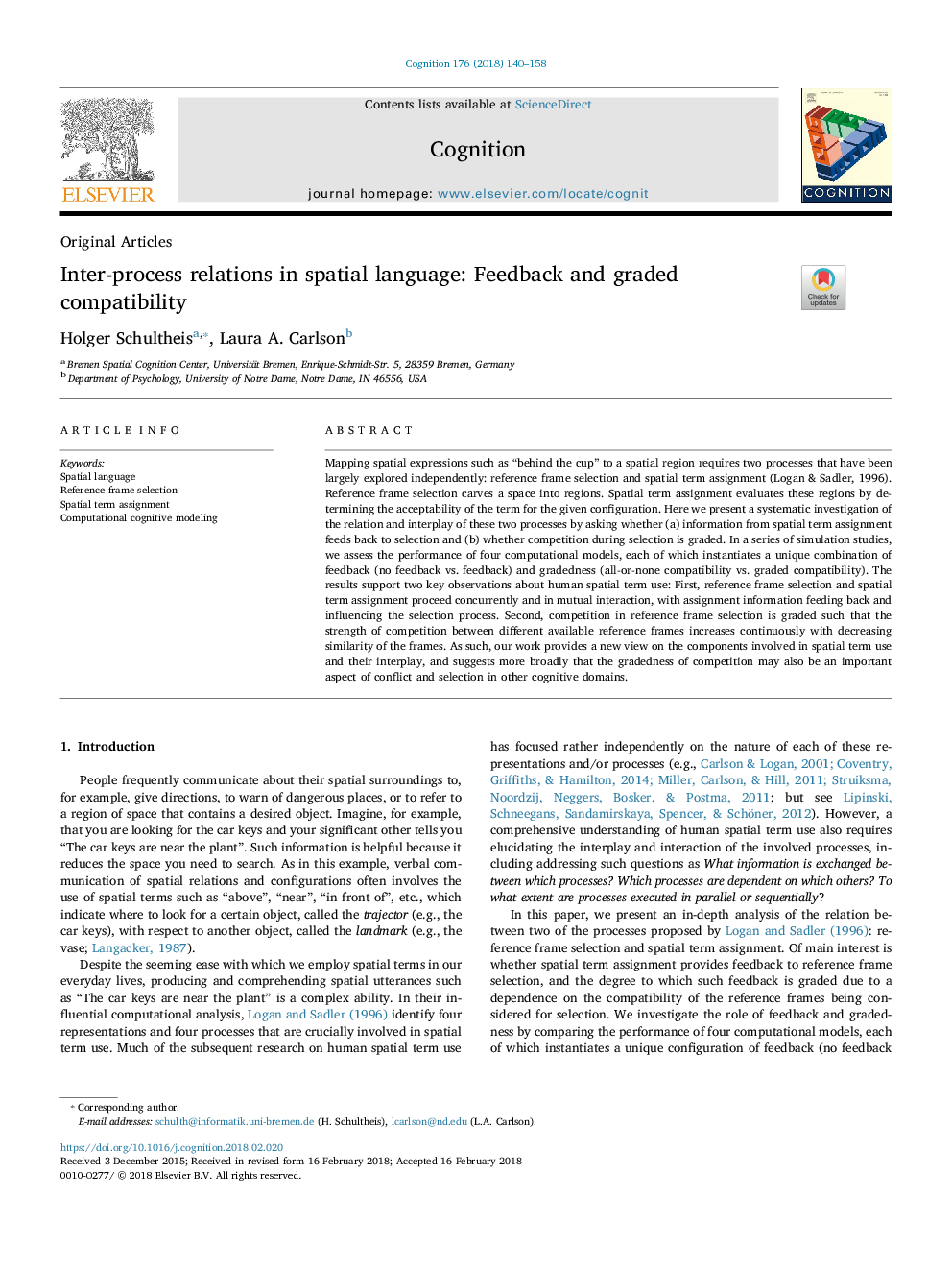ترجمه فارسی عنوان مقاله
روابط متقابل در زبان فضایی: بازخورد و سازگاری درجه بندی شده
عنوان انگلیسی
Inter-process relations in spatial language: Feedback and graded compatibility
| کد مقاله | سال انتشار | تعداد صفحات مقاله انگلیسی |
|---|---|---|
| 145851 | 2018 | 19 صفحه PDF |
منبع

Publisher : Elsevier - Science Direct (الزویر - ساینس دایرکت)
Journal : Cognition, Volume 176, July 2018, Pages 140-158
ترجمه کلمات کلیدی
زبان فضایی، انتخاب فریم مرجع، تخصیص مدت زمان فضایی، مدل سازی شناختی محاسباتی،
کلمات کلیدی انگلیسی
Spatial language; Reference frame selection; Spatial term assignment; Computational cognitive modeling;

